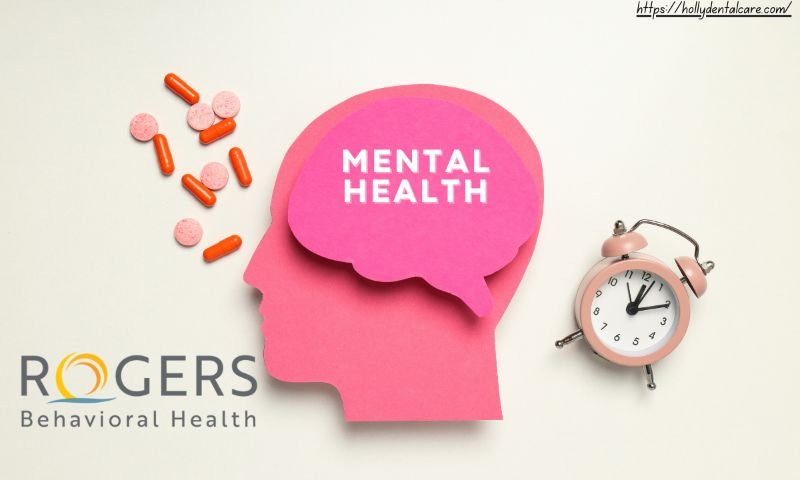Mental health care has changed a lot in the last hundred years, going from lock-ups and shame to a way of care based on good proof, kindness, and mingling with the community. One of the early movers in this change is Rogers Behavioral Health, one of the top nonprofit groups for mental health and addiction help. Set up in 1907 in Wisconsin, Rogers has grown into a big net of hospitals, live-in plans, and out-care centers. It’s known for its strong focus on clear results, care that puts patients first, and new studies to make mental health care better.
Today, Rogers Behavioral Health is at the top of caring for some of the hardest and big health problems, like OCD, worry, sad feelings, hurt, eating problems, and addiction. By mixing medical know-how with kindness, Rogers has changed the lives of many people and their families.
Rogers Behavioral Health: An Overview
Rogers Behavioral Health is a nonprofit, top-ranked health care group that gives special care to kids, teens, and grown-ups. Based in Wisconsin, it runs full care hospitals, live-in care centers, part-time care programs, and deep care clinics across many states. On any day, over 1,500 patients get care from Rogers, making it one of the biggest mental health care groups in the US.
The group stands out for its results-focused way, collecting tons of patient self-checks each year to see how well it works and to make care better. With more than a hundred years in the field, Rogers has grown its reach past just giving care by backing research, fighting shame, and giving money help through its charity.
Key Features
- First, offers care for those who stay in, live a bit in, or visit but not stay.
- Also, helps with OCD, worry, deep sadness, needing drugs, food issues, and past injury.
- Plus, this place uses proven help like CBT, ERP, DBT, and TMS.
- Also, checks how well folk are doing with tests.
- As well, runs a study place to know more about mind health.
- Just as key, they care a lot for each person, making sure they feel at the center.
- At the same time, offers financial aid, advocacy, and community education.
- Meanwhile, expands nationally with in-person and telehealth options.
- Finally, promotes diversity, equity, and inclusion in care and workforce.
Services & Specialties
Rogers gives strong care plans for kids, young people, and grown-ups. Main points they look at are:
- OCD and fear issues
- Feeling low and mood issues
- Addiction and other linked issues
- Eating issues
- Trauma and PTSD
- Anxiety and low mood linked to Autism
- Using magnets (TMS) to help when other treatments for low mood and OCD do not work.
Rogers delivers care through a full continuum of services:
- Three inpatient hospitals
- Seventeen residential programs
- More than twenty outpatient centers across the U.S.
- Rogers runs more than forty deep, non-stop care and mid-level care programs.
Each day, it aids around 1,500 people, adding up to over 25,000 intakes a year. This group also gives out many millions of dollars in help to the community every year. This aid covers grants for patient care and money help for those who can’t pay for their care.
Types of Health Conditions Treated
Obsessive-Compulsive Disorder (OCD) and Anxiety Disorders
- Rogers is known all over for its top work in OCD and anxiety, using tried and true ways.
Depression and Mood Disorders
- There are set and tailor-made help plans for those with depression and other mood issues.
Addiction and Substance Use Disorders
- Focused plans deal with the hard tie between mental well-being and drug need.
Eating Disorders
- Full stay-in and come-and-go plans are set up for those hard against eating disorders.
Trauma and Post-Traumatic Stress Disorder (PTSD)
- Rogers gives set help for those dealing with trauma and PTSD.
Autism-Related Anxiety and Depression
- There is special help for those facing worry and sadness due to autism terms.
Co-Occurring Disorders
- The place makes sure to give joined and full care for those facing many layering issues.
Strategic Direction & Growth
Rogers follows a big five-year plan with clear goals. They focus on these four key tasks:
- Giving top-notch, special care.
- Creating a team that is different, open, and helps each other.
- Boosting work quality using tech, study, and data.
- Growing their reach and upping local ties.
They recently made more places in big cities all over the country. They also added telehealth to help people in far or poorly served areas. This growth shows that they see more people need mental health help everywhere.
Culture, Equity & Inclusion
Rogers works hard to make a fair and kind place for both the team and those they help. They have a rule about Equity that backs up being diverse, joining hands, and taking care all are welcomed.
Key moves they make:
- They plan ways to get more varied people to work with them.
- They have groups for BIPOC workers, LGBTQIA+ folks, and those who served in the military.
- They train the team to talk in a way that is kind, and mindful of biases.
- They make sure care suits the many needs of all patients.
These actions do more than just make the work place better; they also make the care they give better. They make sure the help they give thinks about and pays attention to the many types of lives and needs of those they care for.
Challenges
- Rogers Behavioral Health is low on staff because more people need help with their mental health.
- Giving one-on-one care to many different patients is hard and keeps being hard.
- It’s tough to keep a set plan and yet change things to fit each person’s way of getting better.
- It’s hard to keep the same care level at many places.
- Even with these hard parts, Rogers keeps being smart and strong in how they plan and care for patients.
Future Directions in Health Care
Going forward, Rogers aims to grow its reach and easy use of services. First, the rise of telehealth plans will let them help more people, most of all those in hard-to-reach areas. Second, bringing in new methods and tech tools will make care more tuned to each person. Third, ways to stop health issues before they start will become key, focusing on spotting problems early and stepping in quick, not just handling emergencies. In the end, Rogers sees a time when mental health care is fully part of all health care, making sure people get full help at every step of their way.
Conclusion
Rogers Behavioral Health is a top name in mental health care, bringing together caring and new ideas. It offers many types of treatment, based on solid proof, and cares a lot about the health of the community. It has changed many lives. Even as problems stay, the group keeps growing, making sure that patients get better and also do well. As more people in the wider health system see the value of mental health, Rogers stays ahead, guiding what mental health care will look like in the future in the United States.
Also read:- Apex Labs Muscle Defense Reviews: Does It Really Work?



